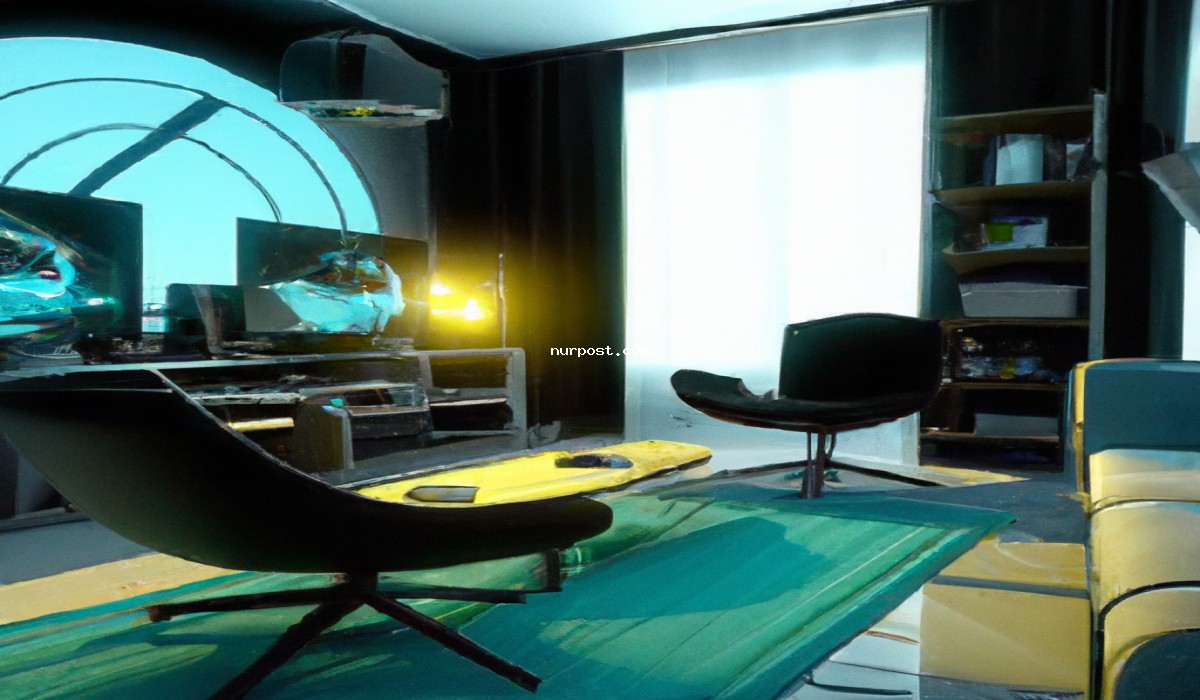How To Build A PC For Official? Are you an avid PC gamer looking to take your gaming experience to the next level?
How To Build A PC For Official
Building your own gaming PC can be a great way to get the performance you’re looking for and customize the hardware, peripherals and even the look of your system. It can also be a little intimidating for those who’ve never taken on a project like this before, so we’ve put together this detailed guide to help you through the process.
In this article, we’ll cover everything you need to know to build a gaming PC from scratch, and provide a list of the parts you should consider buying for an optimal gaming experience. Keep reading for more information.
What You’ll Need To Build a Gaming PC
Before you get started, you should have an understanding of the types of components and features you should look for when building a gaming PC. This will help you determine the best parts to buy for your particular setup.
First, you should consider the power requirements of the games you’ll be playing. If you’re playing modern games, you should be looking at a reasonably powerful graphics card, a fast memory, and a processor that can handle the strain. You should also consider the size and shape of your gaming case as this will determine how much hardware space you have available to work with.
Secondly, you should also consider your budget. A good gaming PC should be able to last you years, so you should budget accordingly and pick components that are able to meet your needs without breaking the bank.
Finally, you should consider the peripherals you’re going to need. This includes a monitor, a gaming mouse, and a gaming keyboard. You’ll want to make sure you select peripherals that are comfortable and fast, and don’t forget to include your preferred headgear.
Now that you know the basics, let’s talk about the components you’ll need to build a gaming PC.
Step 1: Choosing a Central Processor
When it comes to gaming PCs, the processor is one of the most important components. It’s the brain of your system and can affect the performance and speed of your gaming experience. When selecting a processor, your main choice is between Intel and AMD processors.
Intel processors are generally considered to be the more powerful option, and they’re often preferred by hardcore gamers. They offer faster speeds, better performance, and are more power efficient than their AMD counterparts. However, AMD processors are usually cheaper, making them the better option for budget builds.
Step 2: Choosing a Graphics Card
A Graphics Card is the component responsible for managing the visual elements of your gaming experience. It’s the most important component when it comes to gaming and so you should put some thought into the kind of card you choose. Again, when it comes to graphics cards, you have the choice between AMD and Nvidia.

AMD graphics cards tend to be cheaper than Nvidia and are often preferred by budget gamers. They provide decent performance and are popular with mid-range gamers. Nvidia graphics cards are more expensive but also offer improved performance and higher levels of power efficiency. They’re the preferred choice for serious gamers and those with more money to spend.
Step 3: Choosing Memory
Memory (or RAM) is responsible for handling memory-intensive calculations and tasks that require quick access to large amounts of data. The amount of RAM you need really depends on your gaming needs. If you’re playing high-end games or engaging in intensive multitasking, you should consider investing in higher amounts of RAM. High-end gaming PCs should have at least 8GB of RAM, but some high-end systems can support up to 32GB of RAM.
Step 4: Choosing a Motherboard
The motherboard is the backbone of your gaming system and so you should make sure you choose a good one. The motherboard you choose determines the type of processor and graphics card you can install in your system, so you should make sure you select one that can accommodate the components you need. You should also consider other considerations such as the speed of your processor and the number of USB ports.
Step 5: Choosing a Power Supply
You should always buy a good power supply to power your gaming PC. A good power supply should be able to handle the power needs of your system without breaking the bank. You should consider how many watts you need, and also make sure the power supply is reliable and well-built.
Step 6: Choosing a Case
The case is the exterior of your system and will house all of your components. When selecting a case, you should consider the size and shape, as well as the ventilation capabilities. You’ll also want to make sure the case has good airflow and enough ports for all of your components.
Step 7: Choosing Peripherals
The gaming peripherals you choose is largely a matter of personal preference. Selecting a mouse and keyboard is especially important as these are the things you’ll interact with the most. You should also consider investing in a good gaming monitor and headset, as these are also important for a top-notch gaming experience.
Step 8: Putting It All Together
Now that you’ve chosen all of your components and peripherals, it’s time to put it all together. Start by placing your motherboard into your case and slotting in your processor. Connect your RAM, graphics card and any other components that you have chosen. Finally, attach all of your peripherals and you’re done!
FAQs
What do I need to build a gaming PC?
In order to build a gaming PC, you will need a processor, graphics card, RAM, mother board, power supply, case and peripherals such as a monitor, mouse, and keyboard.
Do I need a special monitor for gaming?
Yes, you should consider investing in a monitor designed specifically for gaming. Look for monitors with high refresh rates, low response times and wide viewing angles.
What size case should I choose for a gaming PC?
The size and shape of the case you choose will depend on the components you’ve selected. A good rule of thumb is to choose a case with at least 4 cubic feet of space to ensure you have enough room for all of your components and peripherals.
What type of RAM should I choose for a gaming PC?
The amount of RAM you need will depend on the type of games you want to play and how much multitasking you’ll be doing. For most modern games, 8GB should be enough, but if you are an intensive multitasker, you may want to look at 16GB or even 32GB.
Which processor should I choose for a gaming PC?
Intel processors are generally considered to be the more powerful option for gaming PCs. They offer fast speeds, better performance, and are more power efficient than AMD processors. AMD processors are usually cheaper, making them the better option for budget builds.
Should I choose an AMD or Nvidia graphics card?
Both AMD and Nvidia graphics cards have their pros and cons. AMD graphics cards tend to be cheaper and are often preferred by budget gamers. Nvidia graphics cards are more expensive but also offer improved performance and higher levels of power efficiency.
Do I need a special power supply for a gaming PC?
Yes, you should always invest in a good power supply to power your gaming PC. Look for one that is reliable and well-built and has enough watts to power your system.
